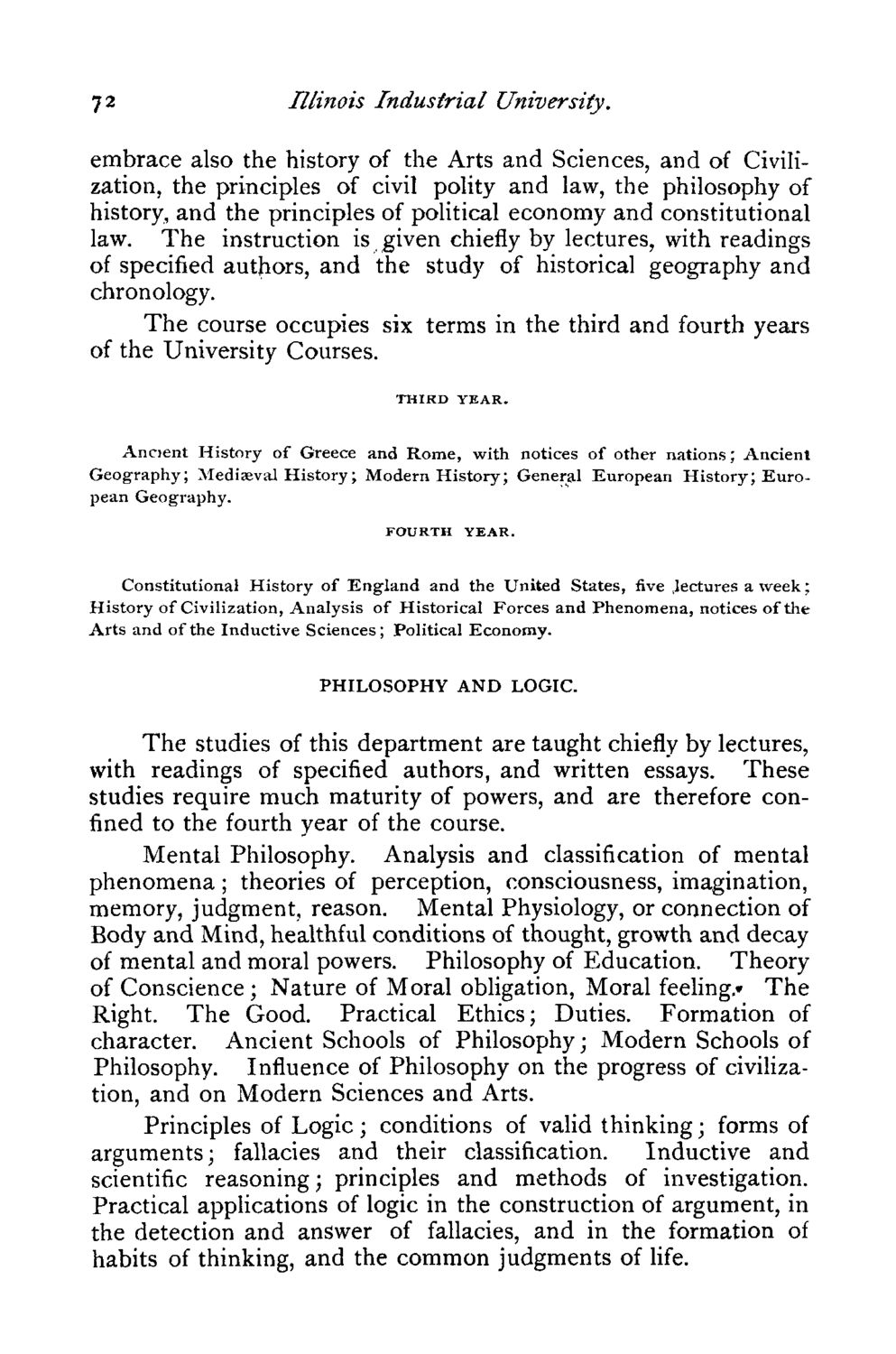| |
| |
Caption: Course Catalog - 1879-1880
This is a reduced-resolution page image for fast online browsing.

EXTRACTED TEXT FROM PAGE:
72 Illinois Industrial University. embrace also the history of the Arts and Sciences, and of Civilization, the principles of civil polity and law, the philosophy of history, and the principles of political economy and constitutional law. The instruction is given chiefly by lectures, with readings of specified authors, and the study of historical geography and chronology. The course occupies six terms in the third and fourth years of the University Courses. THIRD YEAR. Ancient History of Greece and Rome, with notices of other nations; Ancienl Geography; Mediaeval History; Modern History; General European History; European Geography. FOURTH YEAR. Constitutional History of England and the United States, five .lectures a week; History of Civilization, Analysis of Historical Forces and Phenomena, notices of the Arts and of the Inductive Sciences; Political Economy. PHILOSOPHY AND LOGIC. The studies of this department are taught chiefly by lectures, with readings of specified authors, and written essays. These studies require much maturity of powers, and are therefore confined to the fourth year of the course. Mental Philosophy. Analysis and classification of mental phenomena ; theories of perception, consciousness, imagination, memory, judgment, reason. Mental Physiology, or connection of Body and Mind, healthful conditions of thought, growth and decay of mental and moral powers. Philosophy of Education. Theory of Conscience; Nature of Moral obligation, Moral feeling.* The Right. The Good. Practical Ethics; Duties. Formation of character. Ancient Schools of Philosophy; Modern Schools of Philosophy. Influence of Philosophy on the progress of civilization, and on Modern Sciences and Arts. Principles of Logic; conditions of valid thinking; forms of arguments; fallacies and their classification. Inductive and scientific reasoning; principles and methods of investigation. Practical applications of logic in the construction of argument, in the detection and answer of fallacies, and in the formation of habits of thinking, and the common judgments of life.
| |